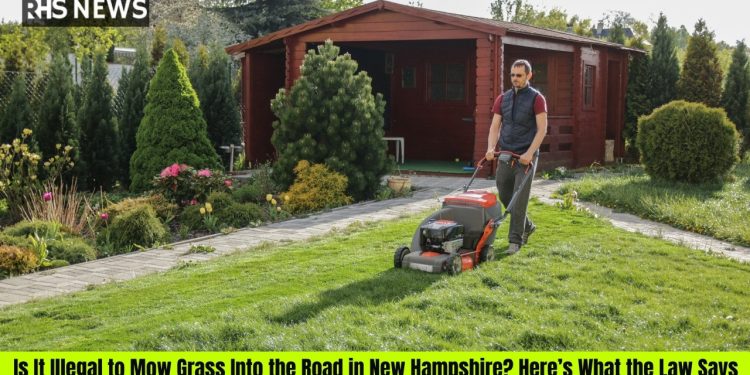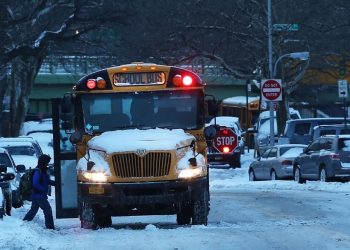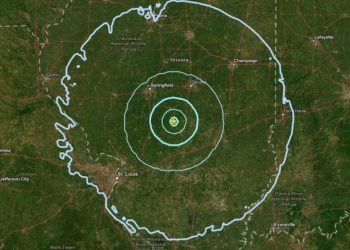Mowing a lawn is a common chore in residential and commercial properties throughout New Hampshire. However, a question that often arises during mowing season is whether it is legal to allow or intentionally mow grass, clippings, or other yard waste into the road or highway shoulder. This article explores New Hampshire state laws and local regulations on this issue, explains the implications of mowing grass into roads, and offers practical advice to property owners to maintain compliance and keep roads safe.
Understanding Roadside Maintenance in New Hampshire
This Article Includes
- 1 Understanding Roadside Maintenance in New Hampshire
- 2 Related posts
- 3 Villager who escaped prosecution in attack on husband apprehended again
- 4 List of School Cancellations for Friday as Snowstorm Approaches
- 5 Legal Concerns With Mowing Grass Into Roads
- 6 Safety Hazards of Grass Clippings in Roads
- 7 Lawn Equipment Use and Roadway Laws in New Hampshire
- 8 What Property Owners Should Do
- 9 Environmental and Practical Benefits of Responsible Lawn Maintenance
- 10 Conclusion
The New Hampshire Department of Transportation (NHDOT) undertakes extensive mowing and maintenance activities along the shoulders of state highways and roads. Every year, the state mows thousands of miles of roadside grass and manages vegetation to ensure clear visibility, prevent overgrowth, and promote safe travel. These efforts reflect the recognized importance of managing roadside vegetation professionally and responsibly.
Private property owners and municipalities may also be responsible for maintaining grass and vegetation adjacent to roadways within their jurisdiction or property. With this shared responsibility comes the obligation to not interfere with public road safety.
Legal Concerns With Mowing Grass Into Roads
While New Hampshire statutes do not provide an explicit law forbidding the act of mowing grass clippings into the road, broader legal principles and municipal regulations often govern debris, litter, and potential hazards on roadways. Depositing grass clippings or yard waste directly onto public roads can be regarded as creating unsafe conditions.
Grass clippings on roads create slippery surfaces that can pose risks to motorists, cyclists, and especially motorcyclists. These clippings can reduce tire traction, particularly on curves and turns, contributing to accidents. Due to these safety concerns, many jurisdictions have regulations categorizing the disposal of grass clippings, leaves, and yard debris into streets as illegal or prohibited littering.
In New Hampshire, enforcement can fall under laws related to roadway safety, littering, or public nuisance. Municipalities often have ordinances that encourage proper yard waste disposal methods to prevent hazards and maintain clean streets.
Safety Hazards of Grass Clippings in Roads
Grass clippings are mostly water, making them slippery when compacted on asphalt or pavement surfaces. This slip hazard resembles ice and can lead to loss of vehicle control, particularly for motorcycles that rely heavily on direct tire contact for stability.
This heightened risk has real-world consequences. Motorcyclists face increased dangers when navigating roads littered with grass clippings, often requiring them to change lanes abruptly or slow down sharply to avoid these hazards. While exact accident statistics specific to New Hampshire related to grass clippings are not commonly reported, the dangers are well documented nationally.
Beyond the risk to vehicle safety, grass clippings may also clog storm drains and drainage systems, potentially causing localized flooding or water pooling, which can further degrade road conditions and safety.
Lawn Equipment Use and Roadway Laws in New Hampshire
New Hampshire law considers the use of lawnmowers and similar equipment on public ways under specific conditions. For example, riding or driving a lawnmower on the road is allowed only in short distances for practical reasons (such as moving from one yard to another) but not as regular road transportation due to lack of vehicle features like headlights and signals. Operating lawnmowers on public roads while impaired is illegal and prosecutable.
This indicates a general legal approach that acknowledges private property maintenance but imposes limits to protect road safety and public use of highways.
What Property Owners Should Do
To comply with safety recommendations and legal expectations, property owners in New Hampshire should follow best practices when mowing lawns near roadways:
-
Avoid blowing or letting grass clippings fall onto the road or its shoulder. Instead, direct clippings toward the lawn or use a collection bag.
-
Dispose of grass clippings and yard debris using composting, municipal yard waste programs, or designated disposal sites.
-
Be aware of local ordinances within municipalities that may have specific rules about yard maintenance and debris control.
-
Recognize the risk that grass clippings pose to motorists and strive to keep roadways clear and safe for all users.
While an explicit statewide statute forbidding mowing grass into the road is not clearly documented, the accumulation of grass and debris on a road can be considered littering or creating a hazardous condition. Violators may be subject to fines or penalties under local regulations or state safety laws.
Environmental and Practical Benefits of Responsible Lawn Maintenance
Aside from legal and safety issues, responsible lawn mowing and grass clipping disposal support environmental health. Leaving clippings in the lawn as mulch can nourish soil, reduce waste, and lower water needs. Conversely, contributing to road pollution undermines these benefits and can cause infrastructure problems.
Recent studies suggest mowing less frequently and handling grass clippings thoughtfully promotes lawn health and reduces environmental impact. Proper lawn maintenance aligns with community standards for aesthetics and safety.
Conclusion
While New Hampshire law does not explicitly state that mowing grass into the road is illegal, the broader legal framework and safety considerations effectively prohibit the practice. Grass clippings on roads pose a tangible safety risk, particularly for motorcyclists, and may violate local ordinances against littering or creating hazardous conditions.
Property owners should take care to avoid directing grass clippings onto roadways, abide by municipal regulations, and adopt responsible lawn care practices. Doing so helps ensure roads remain safe for all users and contributes to community well-being.
Mowing grass efficiently and safely, respecting public roadways, is both a legal expectation and a civic responsibility in New Hampshire.









